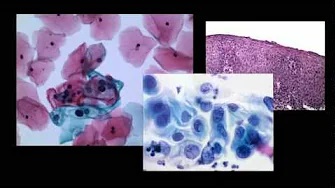Document Type
Article
Publication Date
7-7-2020
Abstract
OBJECTIVES: Management of colorectal cancer warrants mutational analysis of KRAS/NRAS when considering anti-epidermal growth factor receptor therapy and BRAF testing for prognostic stratification. In this multicenter study, we compared a fully integrated, cartridge-based system to standard-of-care assays used by participating laboratories.
METHODS: Twenty laboratories enrolled 874 colorectal cancer cases between November 2017 and December 2018. Testing was performed on the Idylla automated system (Biocartis) using the KRAS and NRAS-BRAF cartridges (research use only) and results compared with in-house standard-of-care testing methods.
RESULTS: There were sufficient data on 780 cases to measure turnaround time compared with standard assays. In-house polymerase chain reaction (PCR) had an average testing turnaround time of 5.6 days, send-out PCR of 22.5 days, in-house Sanger sequencing of 14.7 days, send-out Sanger of 17.8 days, in-house next-generation sequencing (NGS) of 12.5 days, and send-out NGS of 20.0 days. Standard testing had an average turnaround time of 11 days. Idylla average time to results was 4.9 days with a range of 0.4 to 13.5 days.
CONCLUSIONS: The described cartridge-based system offers rapid and reliable testing of clinically actionable mutation in colorectal cancer specimens directly from formalin-fixed, paraffin-embedded tissue sections. Its simplicity and ease of use compared with other molecular techniques make it suitable for routine clinical laboratory testing.
Recommended Citation
Tsongalis GJ, Al Turkmani MR, Suriawinata M, Babcock MJ, Mitchell K, Ding Y, Scicchitano L, Tira A, Buckingham L, Atkinson S, Lax A, Aisner DL, Davies KD, Wood HN, O'Neill SS, Levine EA, Sequeira J, Harada S, DeFrank G, Paluri R, Tan BA, Colabella H, Snead C, Cruz-Correa M, Ramirez V, Rojas A, Huang H, Mackinnon AC, Garcia FU, Cavone SM, Elfahal M, Abel G, Vasef MA, Judd A, Linder MW, Alkhateeb K, Skinner WL, Boccia R, Patel K. Comparison of Tissue Molecular Biomarker Testing Turnaround Times and Concordance Between Standard of Care and the Biocartis Idylla Platform in Patients With Colorectal Cancer. Am J Clin Pathol. 2020 Jul 7;154(2):266-276. doi: 10.1093/ajcp/aqaa044. PMID: 32525522.

